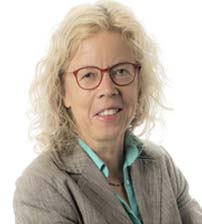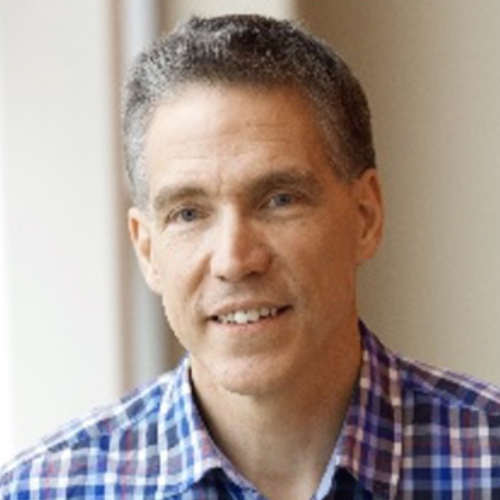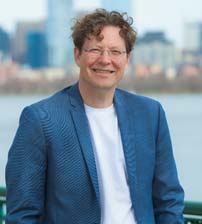Luisa F. Cabeza received her PhD in Industrial Engineering in 1996 from the University Ramon Llull, Barcelona, Spain. She also holds degrees in Chemical Engineering (1992) and in Industrial Engineering (1993), as well as an MBA (1995) from the same University.
Dr Cabeza joined the University of Lleida in 1999 where she created the research group GREA and started her research on thermal energy storage (TES). Her interests include the different TES technologies (sensible, latent and thermochemical), applications (buildings, industry, refrigeration, CSP, etc.), and social aspects.
Dr Cabeza is very active in the storage implementing agreement (ECES IA) of the International Energy Agency. She also acts as subject editor of the journals Renewable Energy, and Solar Energy.

Canada Excellence Research Chair
in Smart, Sustainable and Resilient Communities and Cities,
Concordia University,
Montréal, Canada
Prof. Eicker’s research interest focuses on zero emission urban transformation. She is working on multiple eco-district projects and is building an urban modeling and data platform to assess urban decarbonization strategies.
Her team develops digital twins with gamification and 3D web interfaces to engage users. She has published 8 books, 20 book contributions, over 140 Peer-Reviewed Papers and more than 340 Conference Papers.
In recent years, Prof. Eicker has developed Tools4Cities, an ambitious urban data, modeling and stakeholder engagement platform to accelerate the transition to zero emission cities. With a multi-scale method, she aims to model retrofit scenarios for individual buildings, neighborhoods and entire cities, account for mobility related carbon emissions and analyze the impact of electrification on the distribution networks.
The keynote shows neighborhood scale modeling approaches, prototype use cases for impact, the science behind the visualization applied to urban challenges, future developments and trends and ways to scale solutions to mitigate climate change.
Raymond Panneton is a professor-researcher in the Department of Mechanical Engineering at the Université de Sherbrooke since 1998. His research program focuses on the modeling, characterization and optimization of porous acoustic media.
More specifically, he explores the relationships between the macroscopic properties and the local structure of these media by mathematical techniques, homogenization and microtomography. Professor Panneton is affiliated with the Acoustics group at the Université de Sherbrooke (GAUS), which provides an excellent learning and research environment for scientists and graduate students.
In 1998, he co-founded Mecanum Inc., a spin-off company that develops, manufactures and markets specialized characterization equipment and acoustics software. More recently, he has formed a research team on Ecological and structured design of Acoustic Materials (EMA) to promote the use of recycled and recyclable materials in the context of sustainable development.

Department of Mechanical Engineering Université de Sherbrooke,
Canada
Marco Perino is a mechanical engineer and has a PhD in energy technologies. He is full professor of Building Physics at the Polytechnic of Turin. From September 2019 to September 2023 was the Head of the Department of Energy at the Polytechnic of Turin.
In 2002 he was visiting professor at the Aalborg University – Denmark, in 2017 at the Pontificia Universidad Católica de Chile – Santiago del Chile and in 2019 at the Princeton University – Andlinger Center for Energy and the Environment, New Jersey – US.
He participated at the research activities of the Annex 26, 35, 44, 59, 65, 87 of the International Energy Agency (IEA). He is member of the international Scientific Committee of most of the relevant conferences in his field of research. He is reviewer for various international scientific journals. He was the chairman of the International Building Physics Conference (IBPC 2015) and was the chairman of the International Association of Building Physics (IABP) from 2015 to 2018.
His research activity is summarized by more than 200 scientific papers published on national and international conference proceedings and on national and international journals.
Christoph Reinhart is a building scientist and architectural educator working in the field of sustainable building design and environmental modeling.
At MIT, he is the inaugural Alan and Terri Spoon Professor of Architecture and Climate, Director of the Building Technology Program and head of the Sustainable Design Lab (SDL), an inter-disciplinary group with a grounding in architecture that develops design workflows, planning tools and metrics to evaluate the environmental performance of buildings and neighborhoods.
He is also a managing member at Solemma, a technology company and Harvard university spinoff, and served as strategic development advisor for MIT spinoff mapdwell until it joined Palmetto Clean Technology in 2021. Planning tools originating from SDL and Solemma are used in practice and education in over 90 countries.

Alan and Terri Spoon Professor of Architecture and Climate,
Head of the Sustainable Design Lab
Massachusetts Institute of Technology Cambridge, MA,
USA